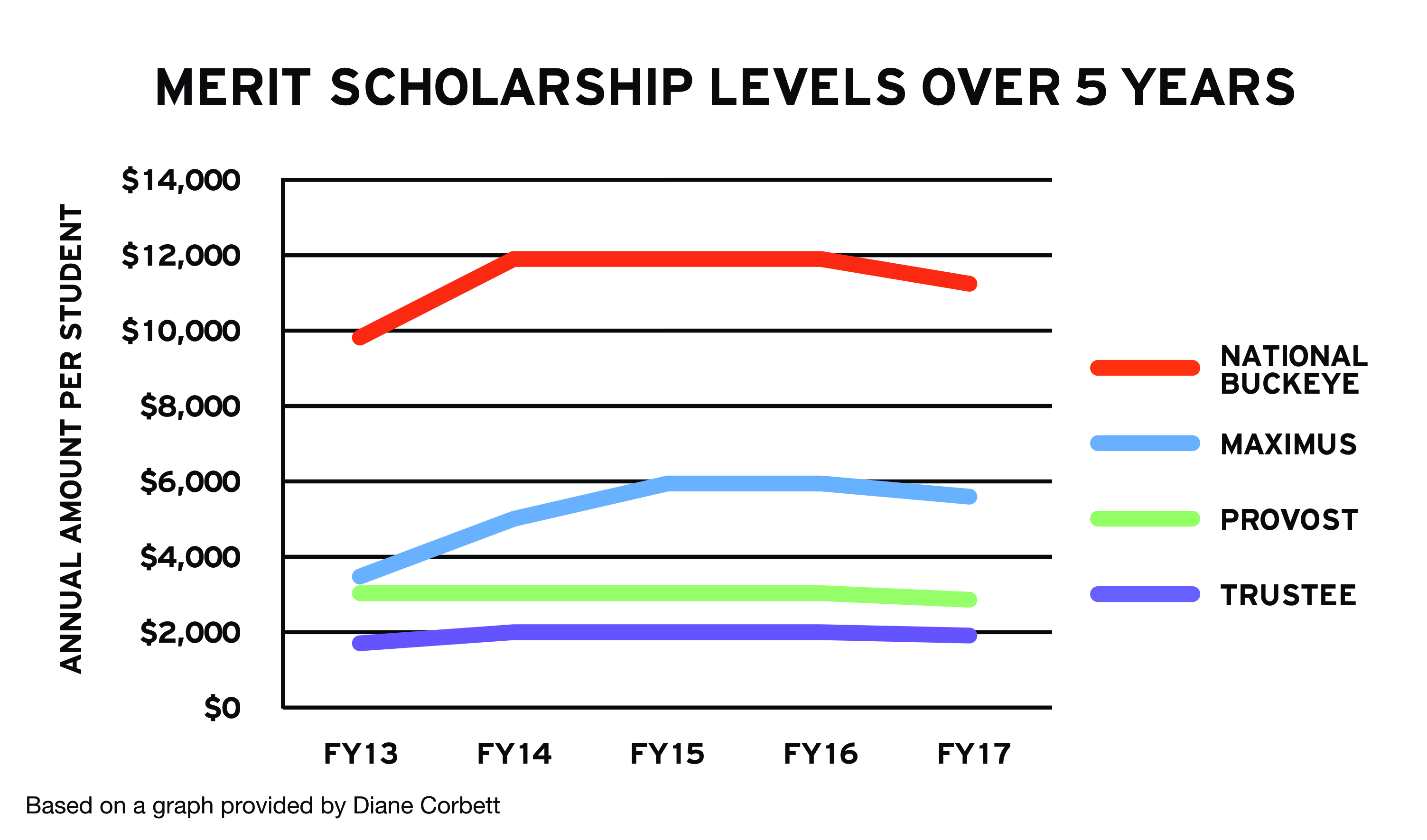
Graphic by Denny Check | Managing Editor for Design
Ohio State merit-based scholarship funding is expected to decrease next academic year as some funding is reallocated to need-based financial aid.
The money awarded for the National Buckeye, Maximus, Provost and Trustees scholarships is decreasing in the fall by 5 percent, with that difference, $2 million, being redirected to need-based financial aid, said Diane Corbett, executive director for student financial aid, in an email.
The decrease in merit funding will only affect incoming freshmen. Merit scholarships are awarded as block amounts that are distributed over four years, so current scholarship holders will retain the level of financial aid with which they started.
“We took care to ensure that no (current) student feels penalized by applying the 5 percent reduction to the incoming class,” Corbett said in an email.
For example, Casey O’Connor, a third-year in accounting, will retain her $12,000 Provost Scholarship at the level it was originally awarded, but a member of the class of 2020 with the same scholarship will receive the award for $11,400.
O’Connor said she has mixed feelings about the shift in funding.
“Having a scholarship has really helped me afford (OSU), but I’m also all for need-based aid,” she said.
Cam Snyder, a third-year in strategic communication, holds an $8,000 Trustees Scholarship, which is set to drop to $7,600 for incoming freshmen. He said he likes the increase in funding for need-based aid, but he still has concerns about the decline in merit-scholarship funding.
Snyder said it seems unfair that an incoming freshman won’t receive as much as he did “for the same list of accomplishments.”
All four scholarships had either increased or stayed the same since the 2012 academic year, according to the data provided by Corbett.
All scholarships, except the Provost Scholarship, will remain above 2012 levels despite the cuts.
Going forward, the university’s plan is to maintain the merit scholarships at the new levels, though Corbett said this will be re-evaluated as part of the budget analysis for fiscal year 2018.
Tuition has yet to be set for next year, though the January Board of Trustees Meeting minutes showed that a freeze on undergraduate in-state tuition was listed as “recommended.” Costs listed as “under evaluation” included out-of-state tuition, housing, dining and program-specific fees.
The target number of students to receive merit scholarships for the incoming freshman class is 3,262, Corbett said. There are 12,575 total undergraduates with merit scholarships this year.
Corbett said the university hopes to maintain that target number of students for the following year, up from 12,000 aided this year.


